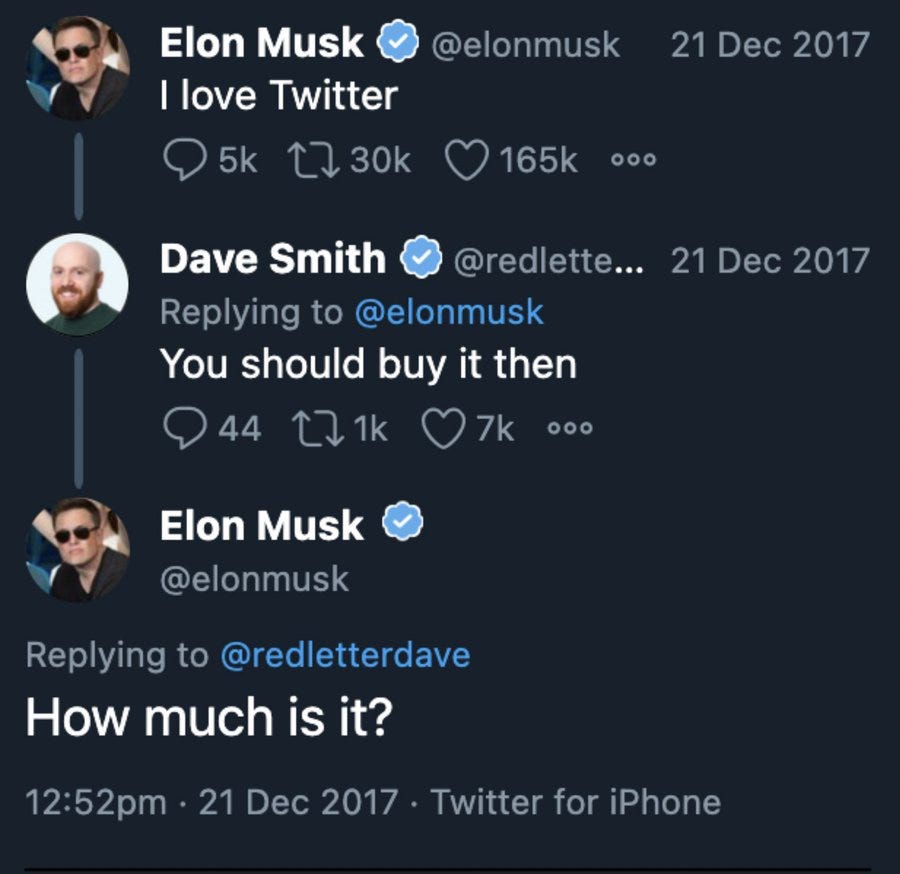World War 3 and the Unknowability of Elon Musk’s Drug Habits
save the earth with probabilistic context
We don’t know how many drugs Elon Musk does. You don’t either. The only person who could know is Musk. Could know: because if he does enough drugs, he may not know. Regular readers of the gossip blog “Crazy Days and Nights” will already be familiar with the accusations made against the so-called “Celebrity CEO.”
Consider, too, this recent tweet.
None of this amounts to any proof, because there is no proof possible. But lacking complete proof does not mean we know nothing. Keep all this in mind as you consider the following scenario: that (1) nobody except Elon Musk could know how many drugs Elon Musk does (2) lacking complete proof does not mean that we know nothing.
The Scenario
In an alternate reality, very close to our own, a pundit named Ezra Steingarde publishes a short substack post with the title “There is greater than 50% chance that Elon Musk is (at minimum) a biweekly cocaine user.”
Steingarde begins the post by acknowledging the profound epistemological problem he faces: “there seems to be no evidence that could substantiate my claim, and therefore, I seem to be committing libel against the richest human being in the world in a foolish attempt to gain attention.”
And then the post takes a strange turn. Steingarde pitches a startup project to Musk: a media site based on the concept of probabilistic contextual evidence. “Think about 9/11. There’s no direct evidence that a conspiracy between neoconservative factions of the CIA and other state intelligence agencies produced this event. But there are strong reasons to think that this is the case: strongly contextual reasons.
The problem, though, is that the existing media structure is anti-contextual. Instead of informing readers about the complex contexts which produce existing events, existing media (on all sides of the spectrum, in every political arena) use emotionally charged quasi-partisan language to provoke addictive attention emotions in their readers so they continue to check the media over and over again.
Could Twitter become this, Elon? Certainly Twitter could power such a site: combine Twitter with a structured open-source contextual management team, fuck they could be volunteers, make it all a nonprofit: because the world needs this. If we’re going to get to Mars, we need to be smarter as a species, and right now all the media and the social media make us dumber and narrower and shallower moment by moment. They introduce rage instead of context. Maybe you got mad when you read this Elon, but you don’t need to, because it doesn’t matter how much cocaine you do or do not do, what matters is us getting funded to create this new media company nonprofit. You can reach us at sockpuppetstudios@tutanota.com.
The Analysis
What’s the point of this story? What does it have to do with World War Three. At the time of this writing (Monday, June 6, 2022) we may or may not be already in World War Three. The origins of this war are the military events happening in Ukraine. Note the way that we just described it: “the military events happening in Ukraine.” This is a strange way to describe it, because we wanted to avoid all the language that the participants in the events use, because that language already shades our perception of these events, and we are trying to understand them very clearly.
There is a greater than 90% chance that history will regard these events as part of an ongoing proxy war between NATO and the Russian Federation, events dating back to the interference by NATO powers within the election in Ukraine. This is the context. It is a complex context. It is not possible to understand this context if you think, like children do, in terms of heroes and villains, monsters and princes.
This talk of context and childish imagination may sound abstract. Removed from the awful reality. It is not. Childish imaginations lead to this awful reality. How? It was childish for the United States, under Barack Obama, to interfere in the affairs of another country. It is a “dangerous innocence” that leads Americans to believe that they are the “good guys” and that Putin is the “bad” guy. This innocence could, and may, lead all the way towards apocalypse.
But maybe there’s a way to make money off of contextualization, and maybe that profit incentive will lead towards the necessary deepening of mind that the world, and especially the United States needs.
The Argument Re-made
The unknowability of Elon Musk’s drug use is an aspect of global megacomplexity. Our reality is organized, as Marcus Gabriel puts it, into “fields of sense”: different zones with their own intense internal complexity. Put internally complex fields of sense together and you have a situation of global megacomplexity.
But megacomplexity is not unknowability. It is impossible to fully ever “learn” a language: to continue to write and read English means to continue to learn English. But we can grasp more and more of the complex structure.
Alternatively we can get satisfied with a childish vocabulary, and use it to dominate others, gain power, appoint our children to the boards of Ukranian energy companies, and continue a proxy war which will lead to the extinction of most of the human species.
Now you begin to sense the relation between deepening global consciousness and the survival of our species.







